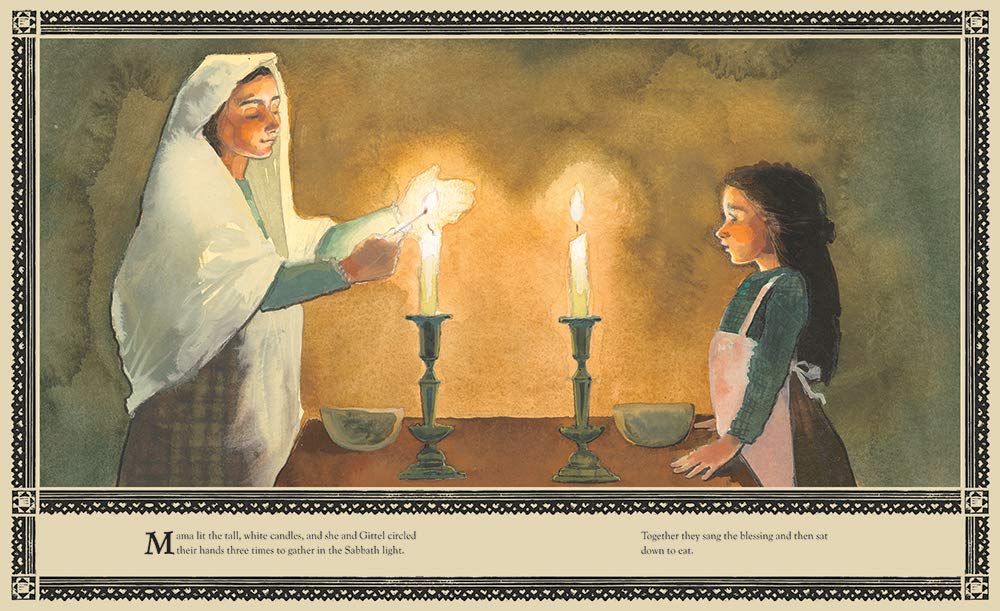With immigration a hot topic heard on the news, this book personalizing the experience of our own Jewish ancestors immigrating from Eastern Europe to the United States via Ellis Island could not be more timely. It will provide for children a context for understanding what immigration is, and the impact it has on people who leave one country for another in search of better opportunities.
The story concerns 9-year-old Gittel, who had expected to travel to the United States with her mother, but at the last minute, because of her mother’s eye infection, she was sent alone on a sea voyage to New York City, where she was to be met by her mother’s cousin. We see Gittel and her Mama celebrating a last Shabbat before leaving their village. Wearing babushkas on their heads, and carrying packs on their backs, they ride in a horse-drawn cart to the port, where they are examined by stern-looking immigration officers. After Mama is rejected for immediate immigration, we see her telling her daughter to be brave on a trip that might phase adults, much less nine-year-old girls.
On the ocean liner, Gittel finds a family with a daughter almost her age, who volunteer to look after her. We see how homesick she is lying on a cot with a doll given to her by her best friend back home. We learn how she worries that the uncle might not like her. And we see her surprise and elation when finally the ship passes the Statue of Liberty.
The paper on which had been written the name and address of Gittel’s relative had been smudged, so there was no immediate way of contacting him. She had to remain at Ellis Island, while a notice went out to a Yiddish language newspaper in New York telling about the brave little girl who had traveled to America alone. Feeling compassion for the little girl, immigration officers meanwhile tried to entertain her as she waited, with her doll, to meet her American family.
The next day, the story is resolved. Her cousin Mendel read the story in the Yiddish paper and came to claim her. After a while, Mama’s eye was healed and she was able to follow her daughter to America, arriving just in time to once again celebrate Shabbat together.
Lesléa Newman’s story combines the accounts of two different members of her own family. The tale is beautifully illustrated with mixed media images by Amy June Bates. The pictures evoke the late 19th and early 20th centuries, before quotas halted most immigration to the United States.
This is a story I believe you will enjoy reading aloud with your child or grandchild sitting on your lap. The book is scheduled to go on general sale February 5th.
Republished from San Diego Jewish World


























